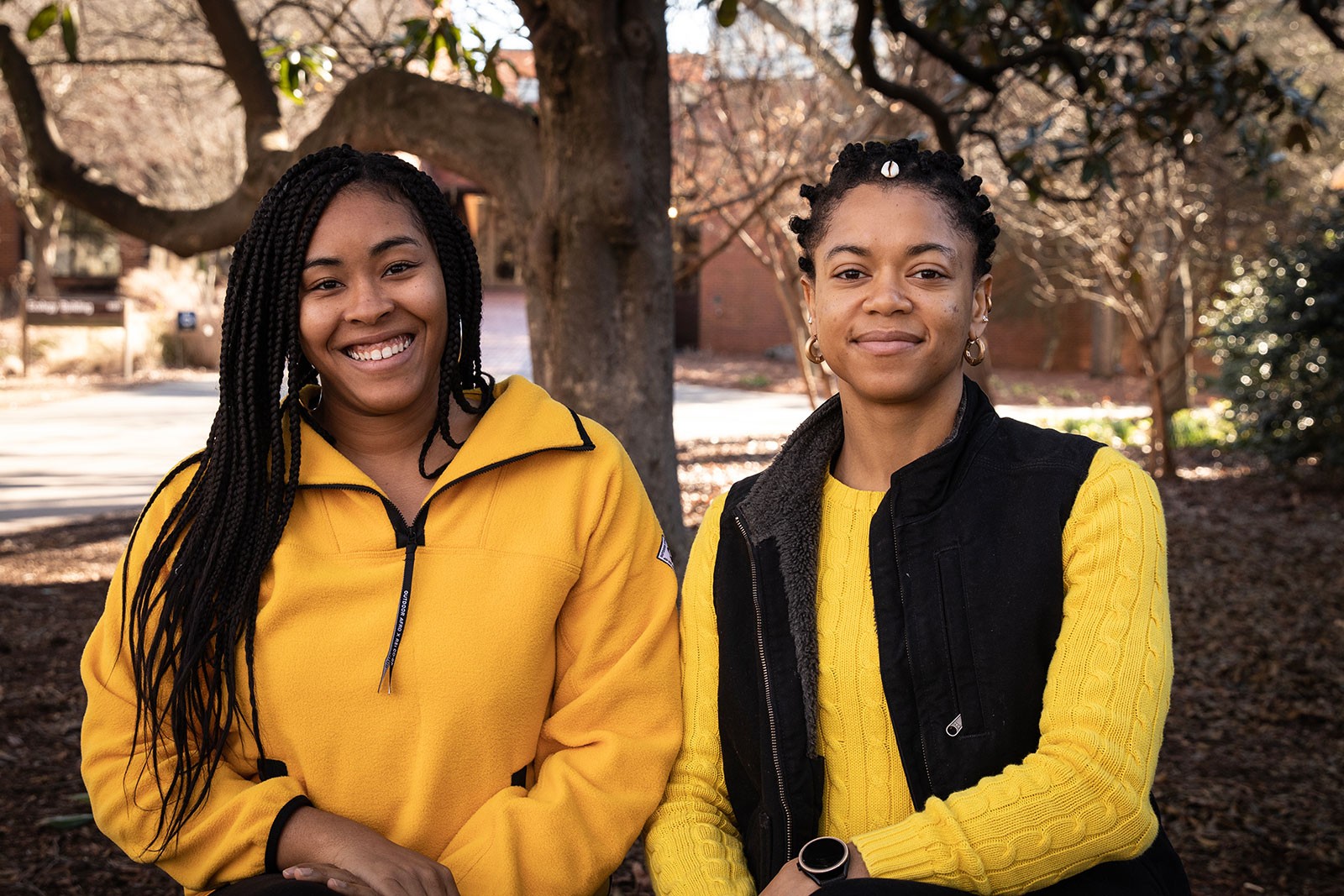A new club for students at the University of Georgia aims to celebrate the connections between Black students and the outdoors.
Through on-campus discussions and off-campus field trips to state parks, Get Outdoors offers experiences couched in a context that can help students gain a deeper understanding of nature, sustainability, outdoor activities and the history of the land. The goal, said organizers and graduate students Courtney Scott and Alexis Martin, is to bring healing to students through outdoor engagement while bridging the gap between Black students and environmentalism.
“All students across campus are welcome, and we especially want those who have never gone hiking or camping to have these experiences” said Scott, a doctoral student in the UGA Warnell School of Forestry and Natural Resources.
To get updates on the club and sign up for upcoming activities, follow them on Instagram: @getoutdoorsuga.
Growing up, Scott was a Girl Scout and later worked as a trail builder for Greening Youth Foundation in Atlanta and Mile High Youth Corps in Colorado. Those experiences greatly influenced her love for outdoor activities. But she also recognized that some students have never had the opportunity to get outside and experience nature. Once students arrive at UGA—and especially if they are drawn to programs like Warnell—they feel as if they are surrounded by hiking, hunting and fishing experts.
“It’s a little intimidating,” she added.
With the help of graduate student Ali Moss and faculty advisor Rebecca Abney, they founded Get Outdoors through a grant from the UGA Office of Sustainability. These friends are now using this opportunity to break down barriers to increase Black presence in natural resource management careers.
So far, Get Outdoors has hosted an online forum, “Black Leaders in Environmentalism: A Black History Month Webinar Event,” where students learned insights into academia, business, government and industry.
They have two trips planned to state parks—Tallulah Gorge and Amicalola Falls—with more in the works. They are also planning an end-of-semester camping trip for about 25 students. Camping equipment rentals will be provided from UGA’s Outdoor Recreation Center and students will receive camping best practices advice from REI experts. In between trips, the group meets on campus for special guest speakers and discussions.
The club activities, in addition to experiencing the outdoors, are meant to incorporate historical context and lessons about the land as well. For example, part of Tallulah Gorge’s history includes a railroad built entirely with African American labor. Understanding the African American and indigenous history of the land adds to the overall club experience and helps students feel more grounded and connected to these outdoor spaces.
“Nature is in us, but we don’t always have access,” said Martin. “You can enjoy the outdoors, but if that’s not your setting, you live where you are—it just passes you by and you don’t even realize you don’t have that access.”
While Scott found her connection to the outdoors through organized programs like Girl Scouts, Martin learned from the land in a more organic way—by growing her own food on a farm. After a couple years of farming and felling trees, she decided to get her master’s degree and forge a career path in natural resources.
Both Martin and Scott are studying community forestry and arboriculture. The experiences studying forestry at Warnell have helped them forge connections with new partners in outdoor recreation.
“When I tell my mother I’m doing things outside, she calls it ‘playing in the dirt,’” said Martin. “She said, ‘Your great-great-grandmother would have loved you—she grew food’. I didn’t get a chance to meet her, but now that I’m here, I’m carrying on that legacy. That’s how life works.”
Simply, students experiencing outdoor recreation will be the success story of Get Outdoors, added Scott.
“You don’t have to come in as an expert. You don’t have to feel like you know everything about the outdoors,” she said. “We’re just going outside to play, and we want to invite those who may not have had the opportunity to do that.”

